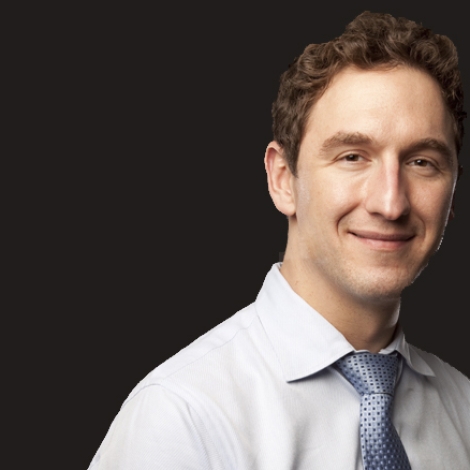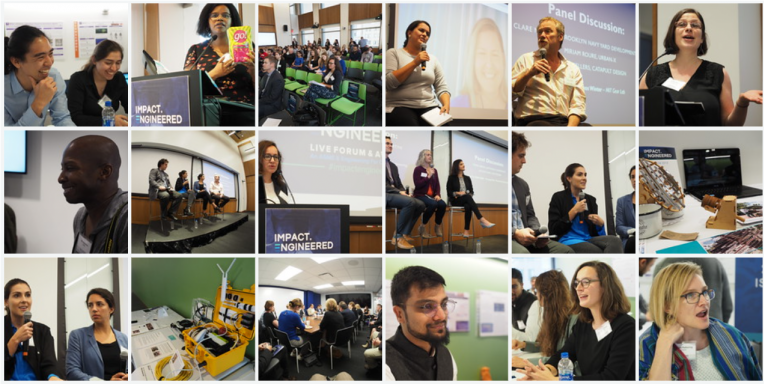While the International Engineering Alliance was nearing completion of its historic revision to the engineering education standards, the Graduate Attributes and Professional Competencies Framework, Mark Abbott at Engineering Change Lab Canada contributed to Engineering Without Borders International’s official response to the consultation process. When the consultation ended, Mr. Abbott also helped write an open letter calling for deeper reforms. The final approved update to the GAPC met some of the goals described in the letter, but not all.
Read More: IEA’s Graduate Attributes: A Commendable Revision with Room to Improve
Mr. Abbott is the Executive Director of the Engineering Change Lab in Canada, which was co-convened by Engineers Without Borders Canada and Engineers Canada. In the seven years since its launch, the lab has worked with at least 150 organizations and 350 CEOs, directors and other leaders, collaborating to support the engineering community as it adapts to a rapidly evolving technological landscape. Previously, Mr. Abbott served as a member of the Executive Team at Engineers Without Borders Canada.
We asked Mr. Abbott five questions, seeking his views on the strengths and shortcomings of the revision to the GAPC.
E4C: What’s your reaction to the final revision to the GAPC?
MA: In my opinion, it is good progress, but doesn’t go far enough. Although we issued our open letter before the final revisions were approved, I believe the key point we made in the letter remains insufficiently addressed: “We applaud the proposed updates to the international framework on graduate attributes and professional competencies for engineers, and the recognition that engineers need to evolve in order to tackle 21st century challenges. But a key component is missing — to address this century’s complex problems, engineers must also be able to reflect on and think critically about the role of engineering itself.”
Critical thinking about the role of engineering itself is not encouraged or supported in a typical engineer’s journey. This lack of self-awareness becomes dangerous given the immense power engineers wield as they create new technologies.
Both the previous and new versions of the Graduate Attributes and Professional Competencies assume an underlying shared understanding of what is engineering that doesn’t actually exist. As a result, they can be interpreted radically differently based on the reader’s underlying assumptions about what is and isn’t engineering.
I believe the answer is not to seek to put in place an ironclad definition of “engineering,” but rather to ensure that every engineer is reflecting on this question for themselves. Unfortunately critical thinking about the role of engineering itself is not encouraged or supported in a typical engineer’s journey. As a result, we have overly narrow definitions in practice, and often overly broad definitions in our promotional rhetoric (i.e. engineers are problem solvers, or engineering is a mindset, which could be said of pretty much any profession or discipline). This lack of self-awareness becomes dangerous given the immense power engineers wield as they create new technologies.
E4C: Your organization has already prioritized many of the things that were added in the revision. Does the new framework validate your work?
MA: As a profession, engineers should be part of the same grand bargain that society makes with all professions: in return for monopoly rights to practice in a particular domain, the profession will always put the needs of society first. The SDGs are the most globally credible articulation of our global society’s needs, so the new framework is just catching up with society and adding specificity, which is good progress.
The SDGs are the most globally credible articulation of our global society’s needs, so the new framework is just catching up with society and adding specificity, which is good progress.
However, merely pointing engineers’ attention towards the SDGs is not sufficient and may even prove harmful. As without increased critical thinking about the role of engineering itself, we are at risk of attempting to solve today’s problems with the same level of thinking that created them in the first place. In particular, the tendency of engineers to focus narrowly on one problem at a time without becoming more skillful in ensuring that the technologies they bring to bear are not in themselves compounding or creating other issues.
We need to enhance collaboration between those who are trained to create technological artifacts (engineering, technologists, technicians) and the social scientists who are trained to understand the complex ethical and societal impacts of technologies.
Enhancing diversity and inclusion is key to the path forward. If engineering is the process of creating technology, and technology is the means by which humans meet our needs and wants, then we need much diversity and inclusion to ensure that the needs and wants of all are being considered. Considering “engineering” in this way makes it clear that the process is too important and the outcomes to powerful to be left to a siloed and relatively homogenous group of “engineers.” In terms of top priorities, we need to enhance collaboration between those who are trained to create technological artifacts (engineering, technologists, technicians) and the social scientists who are trained to understand the complex ethical and societal impacts of technologies. There is also an opportunity to engage with Indigenous Elders and leaders to challenge core dominant orthodoxies of engineering and technology, which tend to be extractive as opposed to regenerative, and tend to overly justify ends over means.
E4C: Do you believe your organization can support the implementation of the framework?
MA: Yes – by continuing to lobby for and support reflection and critical thinking about the role of engineering itself. In particular, but not limited to, in the context of the SDGs and achieving greater diversity & inclusion. We will need to do this until such critical reflection becomes the new norm in a typical engineer’s journey.
The path forward is to lobby for and support reflection and critical thinking about the role of engineering itself.
The ECL Canada’s 10-year goal of reaching a tipping point with 25 percent of the engineering community practicing technological stewardship is targeted directly at this, with the hopes of making reflective practice and critical thinking the new norm.
E4C: How might some of the revisions be implemented?
MA: I believe that the current bottleneck right now isn’t in awareness or care for the SDGs or other noble causes amongst engineers, but rather the limited perception or responsibility / opportunity /agency of engineers about their potential contribution. So again, the path forward is to lobby for and support reflection and critical thinking about the role of engineering itself.
E4C: Parting thought?
MA: I think the challenge at this moment is to strike a balance of encouraging and supporting existing reform efforts, while continuing to get at deeper root issues.

